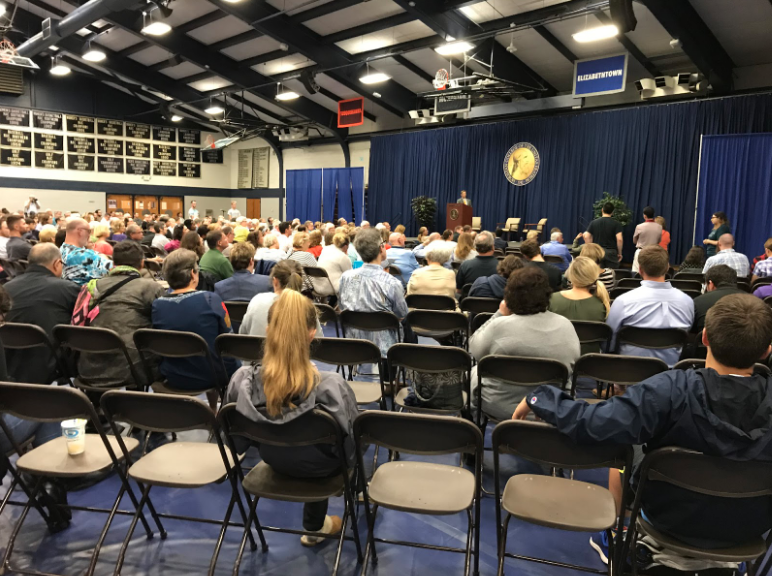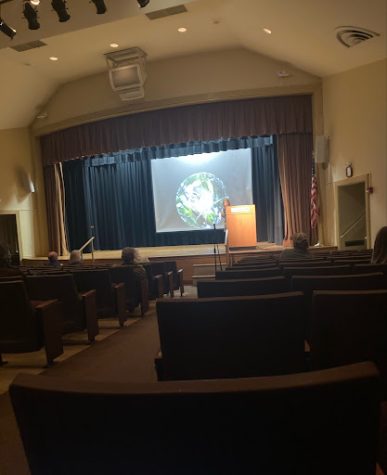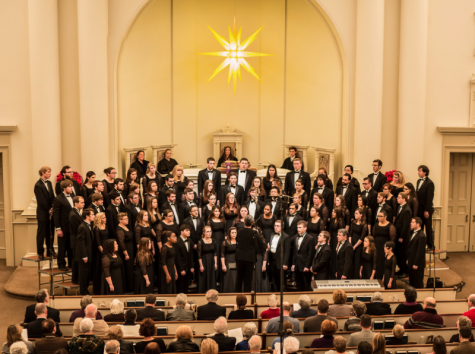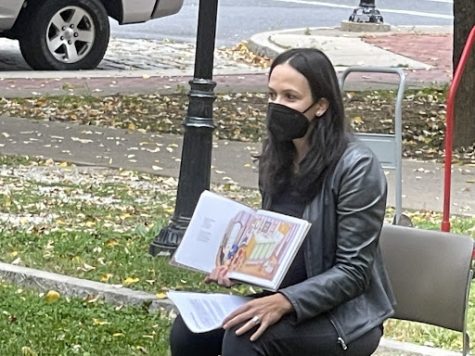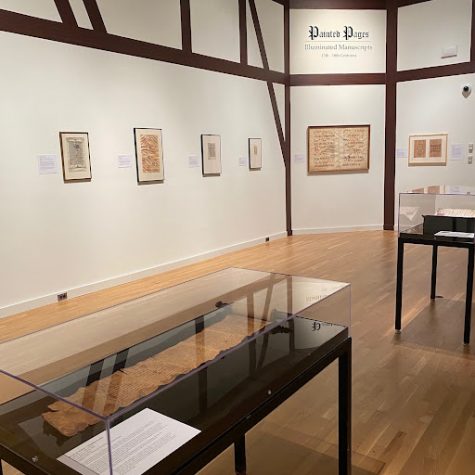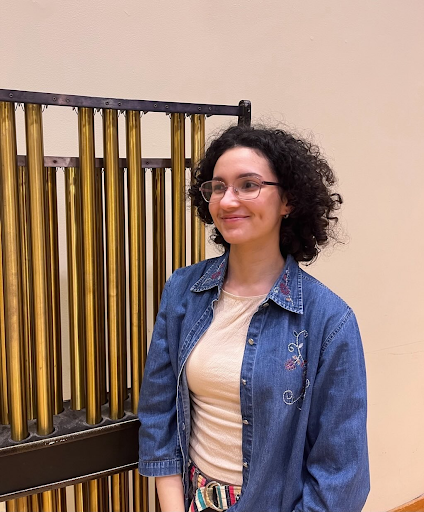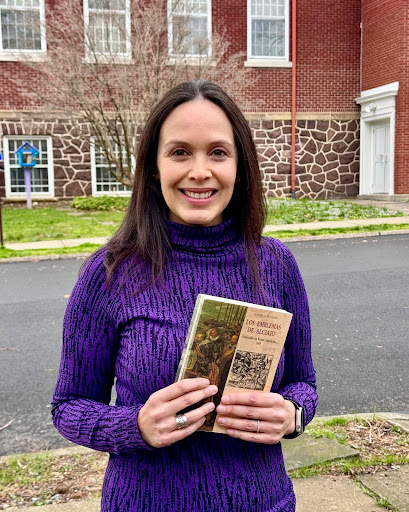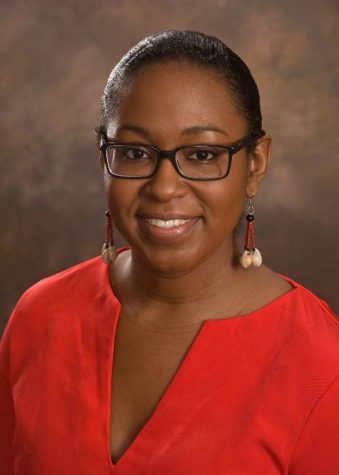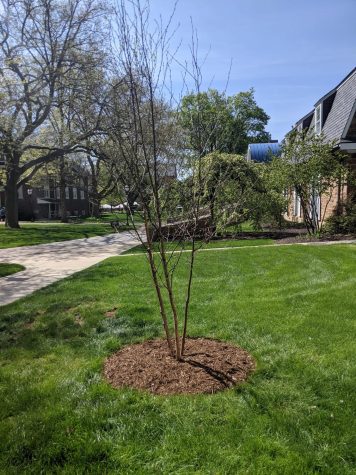Technology Expert Alec Ross Looks to the Future
Alec Ross delivers talk in Johnston hall to a crowd of faculty, students, and community members.
Last Wednesday night, Moravian College students and members from the community gathered in Johnston Hall to hear technology expert Alec Ross deliver the annual Cohen Lecture, on how technology has changed and will continue to change the ways we live.
Author of The Industries of the Future and one-time “tech guru” to former presidential candidate Hillary Clinton, Ross began by considering the amount technology we own and the information we generate with it. Some 20 billion network devices — such as laptops, cell phones and iPads — are currently sending or receiving data, Ross said, a number he predicts will more than double in the next three years. In just the last two years, he said, we’ve used those devices to “produce 90% of all the information [that’s been generated] since the [time] of the cavemen.”
Ross then highlighted the trend toward extracting meaning from “Big Data,” the huge amount of information we generate every day. Of the many ways we’ll harness it in the near future is in making real-time translations of foreign languages via our cell phones, allowing us to “effectively [communicate] in ten or more languages” instantaneously, he predicted.
Artificial Intelligence, machine learning, and robotics are all coming within the next ten years. “The world isn’t just changing,” Ross said. “The world has changed.”
Already, Google has a driverless car, and the Coors brewing company operates a driverless tractor trailer to transport beer from warehouses in Colorado.
Ross admitted that technology, for all its benefits, does come with a cost, however, including eliminating jobs. Just look at trucking, he said. Some 3 million American men earn their living as truck drivers, one of the few well-paying jobs left to those without a college degree. Driverless tractor trailers could make those human drivers redundant.
He also mentioned a Chinese manufacturer who recently replaced thousands of workers with robots, because machines are cheaper than humans.
At the end of his lecture, Ross offered three take-aways for the college students in the audience.
The first was to value interdisciplinary learning. “People who are doing the best in the workforce have studied something technical, but they’ve also chosen to devote themselves to something that we associate with the humanities, whether it is economics, communications, behavioral psychology or emotional intelligence. It’s the combination of skills that are technical with skills that can be identified with the humanities that I think will create tomorrow’s best learners and most resilient workers.”
As proof, he mentioned Mark Zuckerberg, the founder of Facebook, who was a dual major at Harvard University in computer science and psychology. “My belief is that Facebook became Facebook as much because of Mark’s study of behavioral psychology as of his understanding of computer science,” Ross said. “It’s the combination of skills from the humanities with skills that can be associated with science and technology.”
Ross’ second piece of advice was, “the more ink on passports, the better.” He believes globalization will not slow down and that the world will be more interconnected than ever, so students need to travel and live abroad.
Finally, Ross encouraged students to be lifelong learners. “The idea that your education ends the day you step off of campus: those days are over. You need to view your time as a college student as the beginning of your post-secondary education, not the end of your post-secondary education.”
Moravian student Sonya Hennert, ‘20, said she learned a lot from Ross. “He made interesting points about what the future could be. I thought [his lecture] was absolutely worthwhile.” Emily Chaves, ‘22, agreed. “It was pretty interesting to see how he felt our world was moving forward and faster technology-wise as other places,” she said. “Other places around the world are also advancing a lot faster.”


